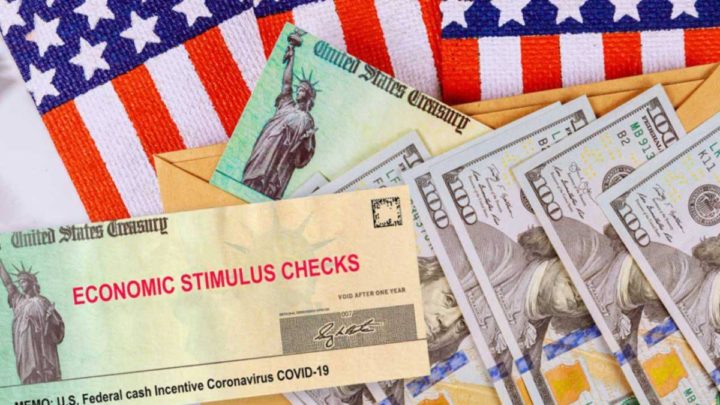“I will not vote for a Covid package that doesn’t include survival payments and unemployment relief for the American people. It’s a red line,” said Rep. Alexandria Ocasio-Cortez.
By Jake Johnson
Congressional leaders are reportedly planning to include another round of direct payments to struggling Americans as part of a $900 billion coronavirus relief agreement that could be finalized Wednesday, a development that comes after progressives ramped up their demand for additional stimulus checks as a necessary component of any deal.
“The Progressive Caucus is united in our position: any Covid relief package must include survival checks and enhanced unemployment assistance—the two most effective ways to put money directly in people’s pockets.”
—Rep. Pramila Jayapal
Citing multiple unnamed sources involved in the rapidly moving talks, Politico reported Wednesday that “congressional negotiators are on the brink of a coronavirus rescue package that would include a second round of direct payments, but would likely leave out state and local funding and a liability shield.”
The size of the direct payments under consideration is not yet fully clear, but Sen. John Thune (R-S.D.) told reporters that negotiators are considering checks amounting to between $600 and $700 per person.
According to the Washington Post, “the addition of the stimulus checks is expected to come in part by reducing the amount of unemployment aid.”
“Congressional leadership has told other lawmakers that they are planning on reducing the number of unemployment benefits by one month from the bipartisan plan,” the Post reported. The plan is expected to include a $300-per-week federal boost to unemployment benefits.
NEW: Congressional leadership’s $900 billion package added checks — likely $600-$700 — but is expected to shrink duration of unemployment benefits from Romney-Manchin plan by as much as 1 month, per 2 ppl briefed on talks
W/ @mikedebonis @seungminkim https://t.co/jkifrOAc3x
— Jeff Stein (@JStein_WaPo) December 16, 2020
Sen. Bernie Sanders (I-Vt.) has demanded one-time payments of $1,200 per working-class adult and $500 per child, while members of the Congressional Progressive Caucus (CPC) have called for payments of at least $2,000.
In an appearance on MSNBC Wednesday, the Vermont senator applauded news that direct payments will likely be included in the final relief package. If the deal includes $600 per adult and $600 per child, Sanders noted, “that would be 2,400 bucks” for a working-class family of four.
“But we have got to do more,” Sanders said. “We have got to do more because the working class of this country, frankly, is in worse shape economically than at any time since the Great Depression.”
It is good news that the latest COVID-relief proposal now includes direct payment to every working class adult and for each of their kids.
But at a time when we are facing the worst economic crisis since the Great Depression, Congress must do more. pic.twitter.com/gwbhWynv0Z
— Bernie Sanders (@BernieSanders) December 16, 2020
Rep. Ro Khanna (D-Calif.) told the New York Times he is “glad that leadership listened to Sen. Sanders and progressive colleagues.”
“We now have the benchmark that any future Covid deal has to have direct payments,” said Khanna. “While we obviously need more, $600 a person is a step in the right direction.”
A $908 billion bipartisan package that has served as a starting point for the ongoing negotiations did not include direct payments, a form of relief that is overwhelmingly popular with the U.S. public.
“I will not vote for a Covid package that doesn’t include survival payments and unemployment relief for the American people,” Rep. Alexandria Ocasio-Cortez (D-N.Y.), a CPC member, tweeted late Tuesday. “It’s a red line. It’s also common sense.”
Rep. Pramila Jayapal (D-Wash.), the newly elected chair of the CPC, said Tuesday that “the Progressive Caucus is united in our position: any Covid relief package must include survival checks and enhanced unemployment assistance—the two most effective ways to put money directly in people’s pockets.”
The apparent breakthrough in long-stagnant coronavirus relief negotiations followed a pair of meetings Tuesday between Democratic and Republican congressional leaders, talks that came days before the government is set to shut down without passage of a sprawling year-end funding bill. Lawmakers are seeking to attach a Covid-19 relief package to the legislation, which must pass by Friday night.






